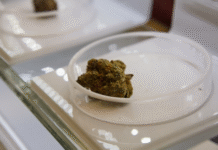Medical science is just beginning to get a handle on cannabis and how it interacts with other medicines. Right now, a hot topic of study is something known as the ‘grapefruit effect’. It is a well-known effect associated with the enzymes responsible for metabolizing medications. There are some who believe that medical cannabis has this effect when combined with certain types of drugs.
The more we learn about medical cannabis and its ability to trigger the grapefruit effect, the more we will understand drug interactions between cannabinoids and certain classes of drugs. It is knowledge we absolutely must acquire. As prevalent as medical cannabis is at this point, we need to know as much about it as possible.
Basics of the Grapefruit Effect
The grapefruit effect takes its name from the fact that certain compounds in grapefruit inhibit liver function. More specifically they inhibit a liver enzyme known as CYP3A4. Along with other enzymes, it is responsible for metabolizing many medications.
When medications are not properly metabolized, several things can occur:
- Higher concentrations of the affected drugs are found in the blood.
- Affected drugs or altered, thereby making them less effective.
- Patients face a higher risk of side effects from both cannabis and the affected drug.
All three scenarios can lead to additional problems. So it’s in the best interests of medical providers to ensure that patients can safely take their medications without the risk of significant interactions.
Cannabis and the Grapefruit Effect
There are concerns about medical cannabis and the grapefruit effect thanks to CBD. As the primary cannabinoid in hemp plants, CBD is believed to have medicinal benefits pertaining to pain relief and nausea suppression. However, CBD is also known to inhibit CYP3A4 and other cytochrome P450 enzymes.
If the inhibition is significant enough, certain types of drugs might not be metabolized correctly. Breakdown could be incomplete. In some cases, a drug could be entirely eliminated from the system before it has an opportunity to work.
Elevating the levels of a particular drug in the bloodstream is another possible effect. Unfortunately, it is a potentially harmful development. The good news is that we know of no reports of serious, life-threatening interactions so far. That is not to say such interactions are impossible.
Classes of Drugs Being Studied
Knowing what we know about the grapefruit effect has led researchers to begin investigating medical cannabis and its impact on classes of drugs already known to be subject to the effect. Researchers are currently looking into:
- Statins (cholesterol medications)
- Hypertension (high blood pressure) medications
- Certain psychiatric medications
- Immunosuppressants
- Certain types of antibiotics
The jury is obviously still out on whether cannabinoids like CBD and THC create the grapefruit effect. But if they do, medical science needs to know it. Doctors and pharmacists need to be advised so that they can do their best to prevent negative interactions.
Talk to Your Doctor and Pharmacist
Beehive Farmacy, in Salt Lake City, UT, advises patients to talk to their doctors and pharmacists about drug interactions. Patients can ask specifically about the grapefruit effect if any of the medications they are using fall under the five classes listed earlier in this post. Keeping the doctor and pharmacist apprised of how one’s body responds to medications can also help a lot.
In the meantime, research into the grapefruit effect with medical cannabis continues. Learning more about how cannabinoids interact with the body’s various symptoms makes for better medicine for everyone. Here is hoping that research ultimately discovers very few problems with medical cannabis and its potential for inducing the grapefruit effect.




